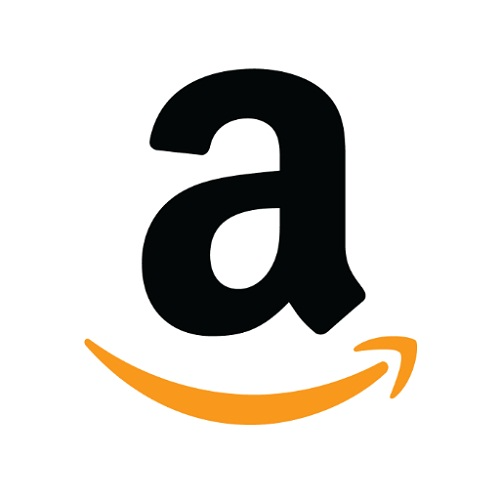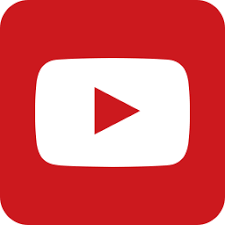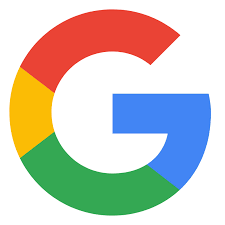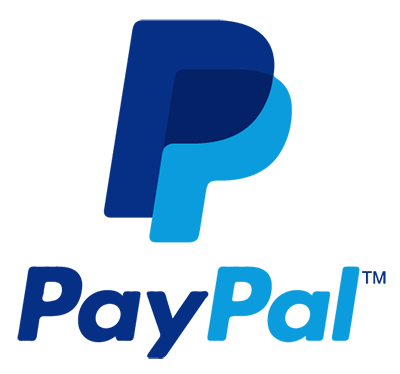How I Built An $840K/Year Piano Tutorial App
Hello! Who are you and what business did you start?🔗
My name is Nimrod, and I am the CEO & co-founder of OnlinePianist, a mobile application that makes it super fun & easy to play one’s favorite songs on the piano.
Unlike many piano learning apps that aim to teach how to play the instrument, OnlinePianist focuses on playing songs and does not require any music theory knowledge.
The app has the largest catalog of piano tutorials outside of YouTube with 3,000+ tutorials. The catalog is very diverse and includes popular songs, classical pieces, songs from the big and small screens, and much more. All songs are arranged by genre & difficulty level, which makes it easy to find what to play.
The app is available for iOS and Android devices as well as a website. The app was downloaded by 6 million users around the globe and has customers from more than 20 countries who generate monthly revenue of $70k.


What's your backstory and how did you come up with the idea?🔗
The journey to becoming an OnlinePianist started with a personal crisis I have experienced in my life, after which I have decided not to put away my dreams. One of them was playing the piano, or more specifically, playing my favorite songs on the piano.
Don’t be afraid to change your mind, even if your thoughts were right for a long time, the world is always changing and the online world is changing even faster.
Back then I was a first-year student for government and international affairs with a dream of becoming an ambassador for Israel (my country), however, as my studies went on I have developed an inner feeling that perhaps this path is not for me and I got really confused about what I want to be. I didn’t feel I had a strong enough anchor to my life and I suffered from mild depression and anxieties.
This situation led to a decision I took to follow my dreams and to do the things I care about. Music was always a significant part of my life and it was very natural for me to go ahead and play myself, even though I was already 25, a very late age to start a new instrument, but I wanted it.
A friend of mine suggested that before I go about investing time and money into my new hobby I should search the internet for free resources to see if I persist. It was great advice. Since I was mainly looking to play my favorite songs I tried YouTube which you are all familiar with. YouTube offers millions of video tutorials of songs so I gave it a go.
While trying YouTube, I liked the method but as I was trying to play songs I felt that there must be a better way, as videos are very limited in what they offer to the viewer, “Play”, “Pause” and this is pretty much it (today you can do a bit more with videos but they are still not interactive enough), it felt very limited. I thought that if a similar method can be produced using animation, the options the user will get will be endless, and this is how OnlinePianist came about.
Our piano tutorial app offers dozens of features that make playing the songs much easier and intuitive - Finger positions, chords, the option to practice each hand individually, focus on specific parts of the song, and much, much more.
Take us through the process of designing, prototyping, and manufacturing your first product.🔗
So, after the idea sparked into my mind, the first thing I did was to call my cousin (today my partner) Tal. Tal is a gifted piano player and a web programmer. I showed him the videos from YouTube and asked him if it was possible to create a similar method with animation, he said yes and we divided the work b/w us. Tal was responsible for defining the technical person that can make this happen for us and I wrote a specification document for the product while starting to think about how we can get people to use our product.
Our initial thought was to create the animated piano player and have the users add the content, but we realized very quickly that the people who come to our product are looking to consume content rather than contribute it.
The first product was available as a website only and offered our tutorials for free while displaying ads before every tutorial. It was nice to start with and although we have started to see very nice traffic, it was not sustainable enough to build a company around it. In the meantime, we've started to get many feature requests from our users and decided to build a premium version around the best suggestions that were launched roughly a year and a half after the initial launch.
The launch of the premium version was very exciting and successful and marked the first significant milestone in becoming a product company.


Describe the process of launching the business.🔗
After we had the technological side ready (i.e an operating piano player) we knew it's not enough, we needed a decent amount of content (songs) to get started with otherwise it would not be effective enough. In addition, we had to think about ways to get people to see the product. We wanted to have around 100 songs on the site before the launch so we gathered any decent tutorial we could find online for free and recorded some songs ourselves. We didn't have any money for advertising and didn’t know how to advertise online. Even if we did, we knew we must get very creative to get people’s attention.
The first thing we did in terms of marketing (and I honestly recommend it to anyone who launches a new digital product) was to build an SEO-friendly website. In other words, we read a lot of articles about the proper way to build a website that will be indexed and organically promoted by Google. Although this is a long-term investment, it paid off big time a couple of months later where we were top-ranked with some very important keywords. But we had to also think about short-term ways to get people’s attention, so we addressed YouTube.
I knew that people are looking for video tutorials on YouTube so we have created our channel and using screen recording we have created our video tutorials. Our strategy was that no matter what for every new song with the potential to be popular that went out, we will be the first to release a video tutorial to YouTube, and so we did.
Our video tutorials included the name of our website and this is how we started to get our first (highly targeted!) traffic.
LISTEN to other people's opinions, even if your own belief is the opposite, you may be losing on opportunities.
We invested a lot in researching for new potential songs that are about to be released and sometimes we even released video tutorials to YouTube before the official release of the song. I recall one time we were investigating which song is going to be the official song of the 2010 world cup and were the first YouTube channel that released a video piano tutorial for it, long before the world cup, and when the event finally arrived, we got tons of traffic from the video.
One can argue that we enjoyed the first-mover advantage and that the world today is different. There is a lot of truth to that statement, starting a new online business (or business at all) is much harder than it was 10 years ago. The different marketing platforms are packed and the costs of advertising are steadily growing all the time, but having said all the above, I believe in creativity and its ability to win.

Since launch, what has worked to attract and retain customers?🔗
I knew that people are looking for video tutorials on YouTube so we have created our channel and using screen recording we have created our video tutorials. Our strategy was that no matter what for every new song with the potential to be popular that went out, we will be the first to release a video tutorial to YouTube, and so we did.
Our video tutorials included the name of our website and this is how we started to get our first (highly targeted!) traffic.
We invested a lot in researching for new potential songs that are about to be released and sometimes we even released video tutorials to YouTube before the official release of the song. I recall one time we were investigating which song is going to be the official song of the 2010 world cup and were the first YouTube channel that released a video piano tutorial for it, long before the world cup, and when the event finally arrived, we got tons of traffic from the video.
One can argue that we enjoyed the first-mover advantage and that the world today is different. There is a lot of truth to that statement, starting a new online business (or business at all) is much harder than it was 10 years ago. The different marketing platforms are packed and the costs of advertising are steadily growing all the time, but having said all the above, I believe in creativity and its ability to win.
Along the way there are also surprises, some are good while others are bad. A good surprise came to us from Mexico a couple of years ago when our app was featured on a popular TV show without any advance notice. We were so stressed out that we thought our servers were being attacked and we closed the option to use the product from a Mexican IP. We then received a lot of messages from users who shared the video of the show with us.
As for bad surprises, we were once attacked by a hacker who deleted all our YouTube videos because we were not willing to give him a free pass to our product (that was a mistake) and had to upload all the content from scratch, losing a lot of views and reputation on YouTube.
Entrepreneurs tend to say that their best growth advice is to build a quality product, however, it is seldom enough to succeed. No less important is to understand what problem your product is solving and who is the most accurate audience for it. This may sound obvious, but it requires a deep understanding of your product, the market, and the competitors. Some of the best advice is the obvious ones, as people often tend to ignore them. Some great products can fail miserably because they are targeted to the wrong audience.
How are you doing today and what does the future look like?🔗
OnlinePianist is a profitable business, 100% of our traffic is organic so we don’t have customer acquisition costs, ad costs, or return on ad spend.
2020 was a great year for us as Covid-19 lockdowns pushed a lot of people towards digital activities such as playing songs on the piano.
It’s a good place to mention that in our current status, all profits are going to develop new features and capabilities of the product, so the numbers theoretically should be higher.
- Gross margin - 23%
- COGS - $637k
- CLTV - $82
- Monthly traffic - 125k downloads/sign ups
- Avg. time on the product - 18m
- CVR - 1-2%
- YouTube Subscribers - 750k
- YOY - 34%
As for future goals, there are two main frontiers that we want to conquer, the first is on the technological front, where we want to be able to listen to what the user plays on his piano or piano keyboard at home using the mobile device’s microphone, this will enable us to provide real-time feedback for the users, give them scores and help them overcome the parts they are struggling with.
Always surround yourself with people smarter & more talented than you, in my opinion, this is where entrepreneurs are being measured. If you manage to bind such people to your idea and vision, you are on the right path (money is seldom the right way to do it).
The second one is marketing, as a company that is 100% organic, we want to be able to build a paid marketing strategy as we believe it can grow the company substantially. This is not an easy task, as it requires reffing our target audience to the max, having a very clear message to this target audience & finding which channels perform best for this target audience. These two frontiers will require significant resources, and we are looking for strategic partners that can help us accomplish these goals.
Through starting the business, have you learned anything particularly helpful or advantageous?🔗
Perhaps the most important thing that I've learned since starting OnlinePianist is that everything should be examined with data and not feelings. When we made the shift to mobile apps we thought that no one would use his small mobile screen to play songs on a piano so we launched the OnlinePianistapp for iPad only, that was a huge mistake that made us lose a lot of potential customers. Eventually, when we launched an iPhone version, it gave us a significant lift across the board.
Timing is also a very important ingredient in the success of a company, but even more so, taking advantage of good timing. Covid-19 had a significant impact on the music learning/playing industries with all companies seeing unprecedented numbers, it is important to take advantage of that and use it to make decisions and moves that will ensure the future of the company.
A good habit for any entrepreneur is to read a lot, try to read at least one article per day. Also, try to meet strong people in your industry (even competitors), there are very few better lessons than these meetings. Finally, make it a habit to make random coffees with members of your team so you can identify issues and respond to them fast.
What platform/tools do you use for your business?🔗
No matter what your business is, make sure you have the best analytics tool to measure your important KPIs. Any industry has its tools but if you are a B2C app, we highly recommend Amplitude as a user behavior tool.
We often use Upwork to recruit freelancers, it is very convenient and easy to use.
What have been the most influential books, podcasts, or other resources?🔗
I like to read Harvard Business Review, they have open-minded publications about management and business in general. Jason Fried has a great blog and a very interesting approach to doing business.
Advice for other entrepreneurs who want to get started or are just starting out?🔗
Don’t be afraid to change your mind, even if your thoughts were right for a long time, the world is always changing and the online world is changing even faster, whatever worked for you for many years may be the thing that holds you back from growth.
Always surround yourself with people smarter & more talented than you, in my opinion, this is where entrepreneurs are being measured. If you manage to bind such people to your idea and vision, you are on the right path (money is seldom the right way to do so).
LISTEN to other people's opinions, even if your own belief is the opposite, you may be losing on opportunities.
Are you looking to hire for certain positions right now?🔗
We are looking for a marketing director, someone that can build and execute our marketing strategy. We plan to invest a lot of resources in marketing in the next couple of years and are looking for a leader in the field, someone that has proven success in B2C products.
The job is paid and full-time from Tel-Aviv. Anyone interested can drop me an email at nimroid@onlinepianist.com.
Where can we go to learn more?🔗
- Website
- iOS App
- Android App
- YouTube channel
- If you don’t have a piano, check out OnlinePianist’s online piano keyboard
If you have any questions or comments, drop a comment below!

Download the report and join our email newsletter packed with business ideas and money-making opportunities, backed by real-life case studies.

Download the report and join our email newsletter packed with business ideas and money-making opportunities, backed by real-life case studies.

Download the report and join our email newsletter packed with business ideas and money-making opportunities, backed by real-life case studies.

Download the report and join our email newsletter packed with business ideas and money-making opportunities, backed by real-life case studies.

Download the report and join our email newsletter packed with business ideas and money-making opportunities, backed by real-life case studies.

Download the report and join our email newsletter packed with business ideas and money-making opportunities, backed by real-life case studies.

Download the report and join our email newsletter packed with business ideas and money-making opportunities, backed by real-life case studies.

Download the report and join our email newsletter packed with business ideas and money-making opportunities, backed by real-life case studies.










